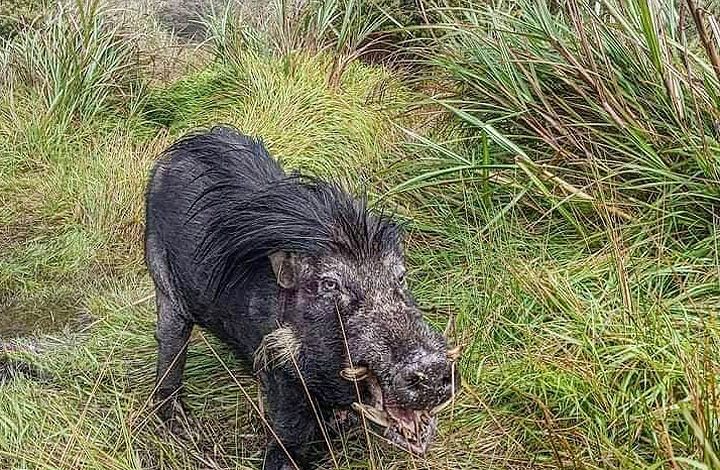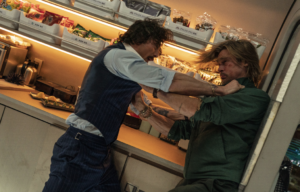Mt. Apo trekkers asked not to bring pork products to protect PHL warty pig from ASF risk

THE TOURISM office of Sta. Cruz in Davao del Sur, one of entry points for treks to Mt. Apo, has advised visitors not to bring pork and pork products to mitigate the threat of African swine fever (ASF) infection among the mountain’s Philippine warty pig population, which have been frequently sighted recently.
Julius R. Paner, the town’s senior tourism operations officer, has issued an advisory that prohibits bringing, cooking, and serving of pork-related food during climbs to Mt. Apo, the country’s highest peak and a declared protected area.
“All Sta. Cruz mountain guides are also directed to monitor from time to time the presence of Philippine Warty Pig which was frequently seen lately in the saddle grassland of the summit and have it reported to this office through actual photo and video footage. Geotagged photos are preferred,” the advisory said.
A team from the Department of Environment and Natural Resources’ Davao Region office also reported sightings of the endemic Sus Philippensis or Philippine warty Pig during a monitoring activity from April 11 to 17.
“These wild pigs, locally known as baboy-ramo or baboy-ihalas, are categorized as vulnerable due to its decreasing population. If the said threat worsens, they may soon be listed as endangered,” according to the regional environment office
Mr. Paner noted that swine fever remains a threat in the region and steps must be taken to ensure that it does not get into the Mt. Apo Natural Park.
He said the local advisory has yet to be passed as a municipal ordinance or a resolution by the Protected Area Management Board, but he expressed confidence that their trained guides will comply.
“But I can always assure that our licensed guides will always follow advisories,” he said. — Maya M. Padillo




